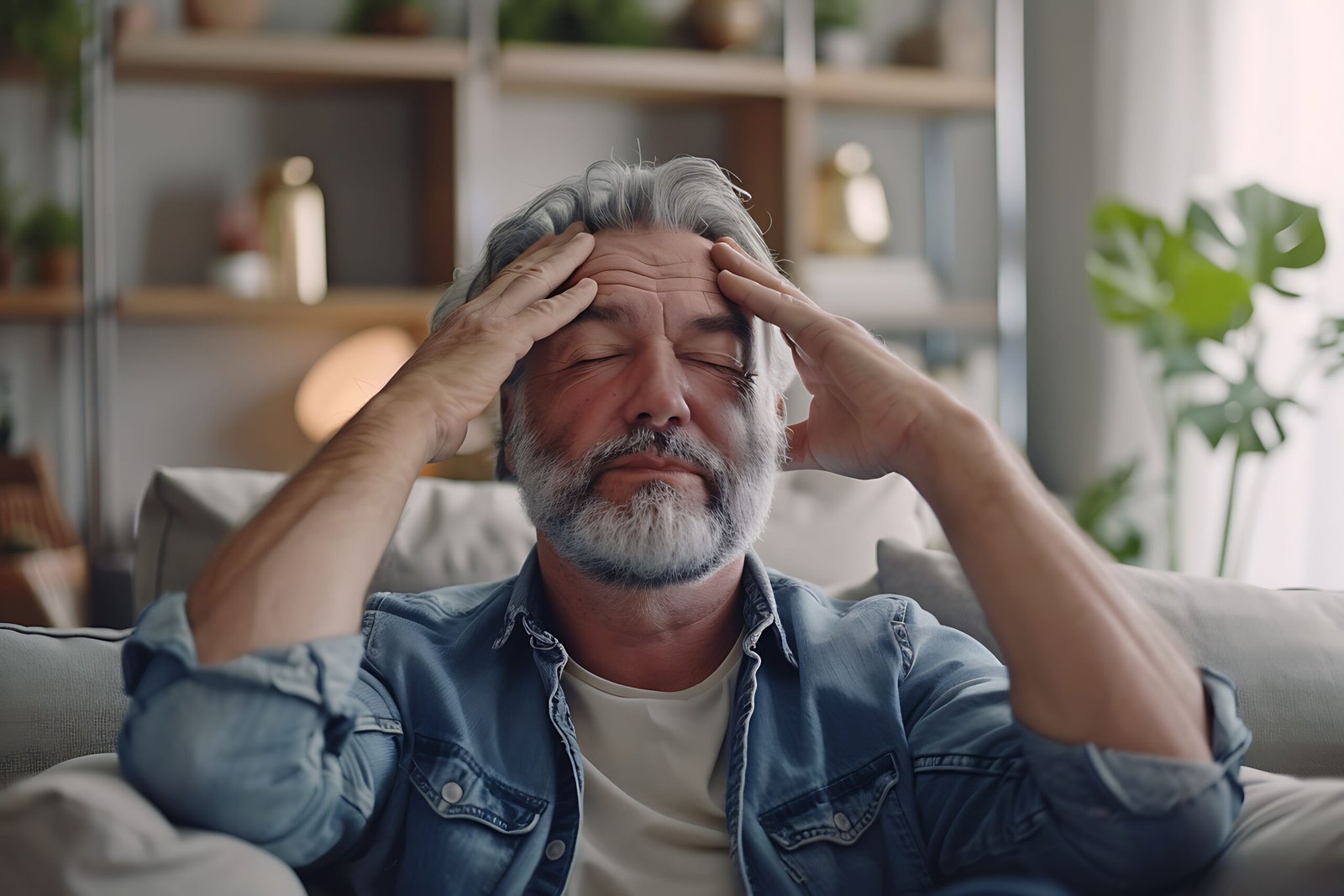Have you ever felt a knot in your stomach when you’re stressed? Or noticed a tension headache creeping in after a long day at work? If you’ve ever wondered why stress seems to show up in your body as physical pain, you’re not alone. In fact, it’s something more people are experiencing than you might think—and it’s not just all in your head.
The connection between stress and physical pain is real, and it’s affecting millions of people worldwide. But here’s the kicker: you might be overlooking the powerful ways stress is quietly causing—or worsening—your pain. In this article, we’re going to unravel that connection, and most importantly, show you exactly what you can do to break the cycle.
Let’s dive in.
Why Does Stress Cause Physical Pain?
It seems almost too simple to be true: you get stressed, and then—bam—your body starts aching, whether it’s a stiff neck, tight shoulders, back pain, or even stomach cramps. But the science behind it is surprisingly straightforward.
When you experience stress, your body releases stress hormones like cortisol and adrenaline, triggering your “fight or flight” response. This is meant to help you deal with immediate threats, like escaping danger. But in today’s world, where stress is often constant (thanks to work, relationships, financial pressure, or even just everyday life), this response doesn’t switch off.
Now, imagine you’re tense all the time. Your muscles tighten, your blood pressure rises, and your heart rate goes up. Over time, these stress-induced changes don’t just go away—they can cause real, lasting physical pain. Chronic stress can lead to muscle tension, headaches, digestive issues, and even conditions like fibromyalgia.
But here’s the thing: you don’t always feel it right away. Stress can build up in your body gradually, and by the time you notice the pain, it might have been there for a while. The longer you stay in a stressed state, the more entrenched this cycle becomes.
“But My Pain Isn’t Just Stress!”
We get it. If you’re dealing with long-term pain, it’s easy to dismiss the idea that stress could be a factor. You might be thinking, “My back pain is from lifting something wrong,” or “My headaches are just because I’m tired.” And while those things could be true, the truth is, stress often plays a much bigger role than we realize.
In fact, stress might be the very thing making your pain worse or preventing it from going away. Here’s how:
- Muscle Tension: Chronic stress causes muscles to contract and tighten. If you’re stressed out regularly, those muscles may never fully relax, leading to tension headaches, neck pain, or back pain.
- Inflammation: Stress triggers the body to release inflammatory chemicals. These chemicals can increase sensitivity in your body, making you more likely to feel pain, even from small triggers.
- Pain Perception: Stress doesn’t just cause physical tension; it affects your brain’s pain receptors. When you’re stressed, your brain becomes more sensitive to pain signals, which means you might experience pain more intensely, even when the cause is minor.
- Reduced Healing: Stress weakens the immune system, slowing down the body’s ability to heal. This means your body takes longer to recover from injuries or ailments, and the pain lingers.
So yes, your pain might seem like it’s from another cause, but stress could be feeding into it—and in many cases, prolonging it.
How to Break the Stress-Pain Cycle
Now that we’ve established how stress and pain are connected, the big question is: How do you break the cycle?
The good news is, once you understand the link between stress and physical pain, there’s a lot you can do to start feeling better. Here are some practical strategies to help you manage both your stress and your pain:
1. Mind Your Mindset
First, it’s important to recognize that stress is something you can control. It’s easy to get caught in the “I’m too busy to relax” trap, but even small moments of mindfulness can make a difference. Try deep breathing exercises, progressive muscle relaxation, or even short meditation sessions. These practices not only calm the mind but also help reduce the physical tension in your body.
2. Get Moving
It might sound counterintuitive, but exercise is one of the best ways to manage both stress and physical pain. Physical activity releases endorphins (your body’s natural painkillers) and helps relax tense muscles. Whether it’s a quick walk, some gentle yoga, or a full workout, moving your body can help reduce the physical impact of stress.
3. Sleep Like It’s Your Job
Sleep is your body’s natural reset button. If you’re not getting enough rest, your body struggles to repair itself, making pain worse and stress harder to handle. Aim for 7-9 hours of quality sleep a night, and try establishing a calming bedtime routine to signal to your body that it’s time to relax.
4. Watch Your Posture
If you’re sitting at a desk all day or hunched over your phone, your body is absorbing that stress physically. Poor posture leads to muscle strain, especially in your neck, shoulders, and lower back. Make an effort to sit up straight, take breaks to stretch, and practice good ergonomics. Little changes can have a big impact.
5. Nourish Your Body
What you eat can influence how well you cope with stress and how your body handles pain. Foods rich in omega-3 fatty acids, antioxidants, and magnesium (like salmon, leafy greens, and nuts) can reduce inflammation and help your muscles relax. On the flip side, too much caffeine or sugar can amp up your stress and make pain feel worse.
6. Seek Professional Help
If your pain is persistent or severe, it may be time to consult a healthcare professional. A physical therapist can help you work through the tension in your body, while a counselor or therapist can assist with stress management techniques. If you’re dealing with chronic stress and pain, you don’t have to navigate it alone.
Final Thoughts: Stress Doesn’t Have to Control You
The connection between stress and physical pain is complex, but once you understand how they’re linked, you can take action to break the cycle. By managing your stress more effectively and taking steps to care for your body, you’ll not only feel better physically but emotionally as well.
It may take some time, but with the right approach, you can reduce both your stress levels and the pain that comes with it. So, the next time you feel that tension building up, remember: your body is telling you something. Listen to it, and take a few moments to relax, breathe, and reset. You’ve got this.
By understanding the stress-pain connection and implementing small, daily changes, you can start feeling better and reclaim control over both your body and your mind. You’re worth it!







